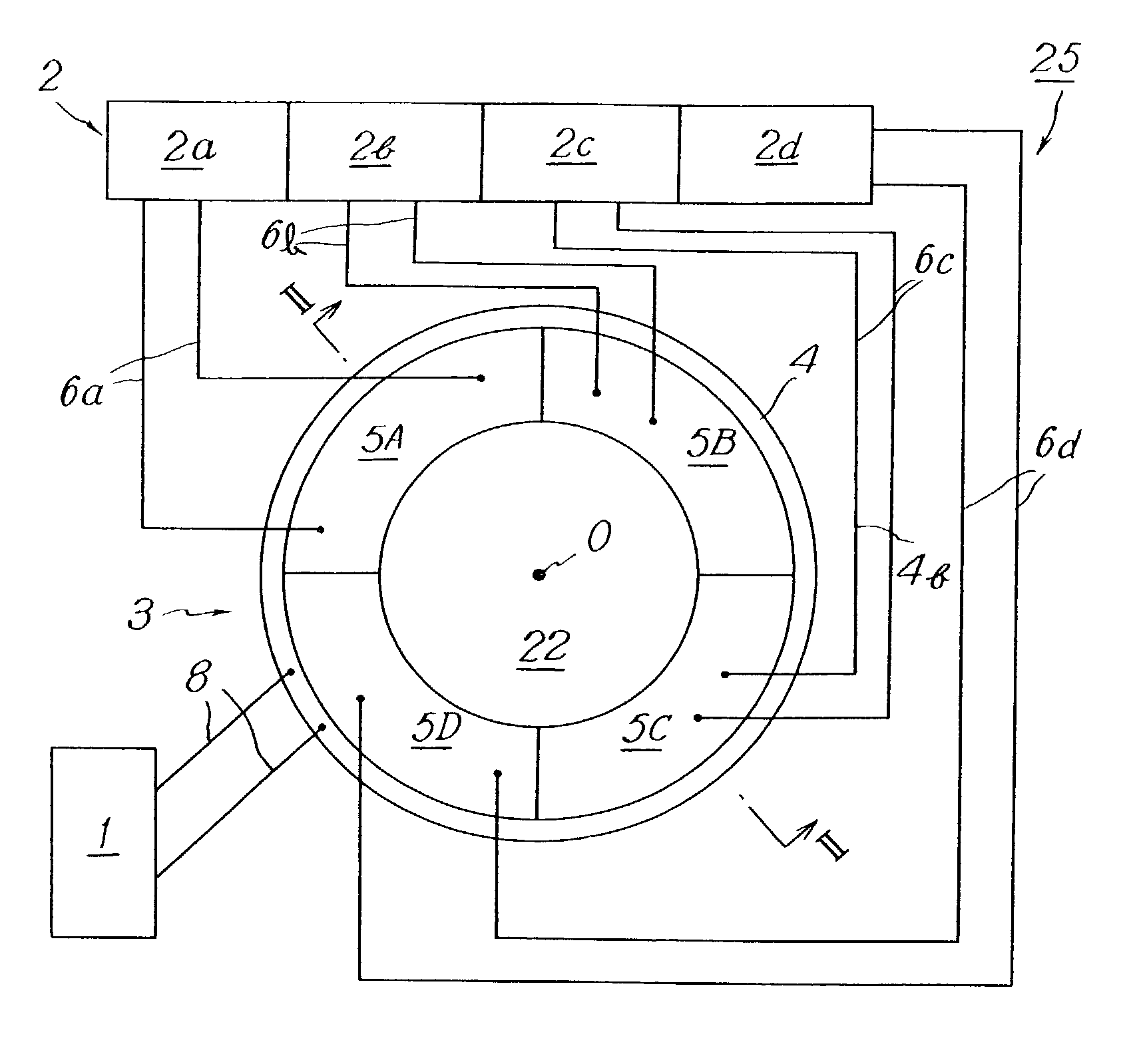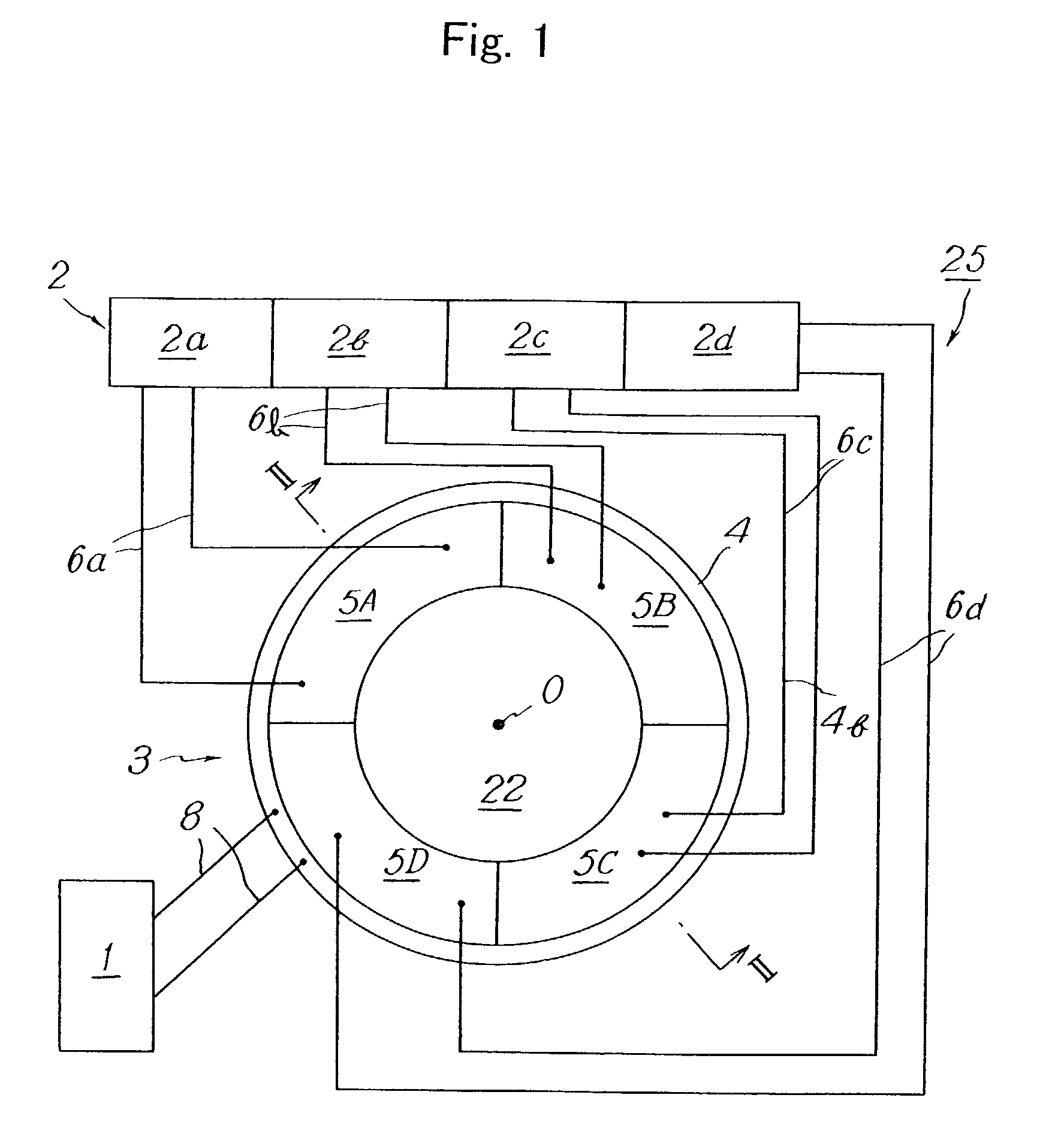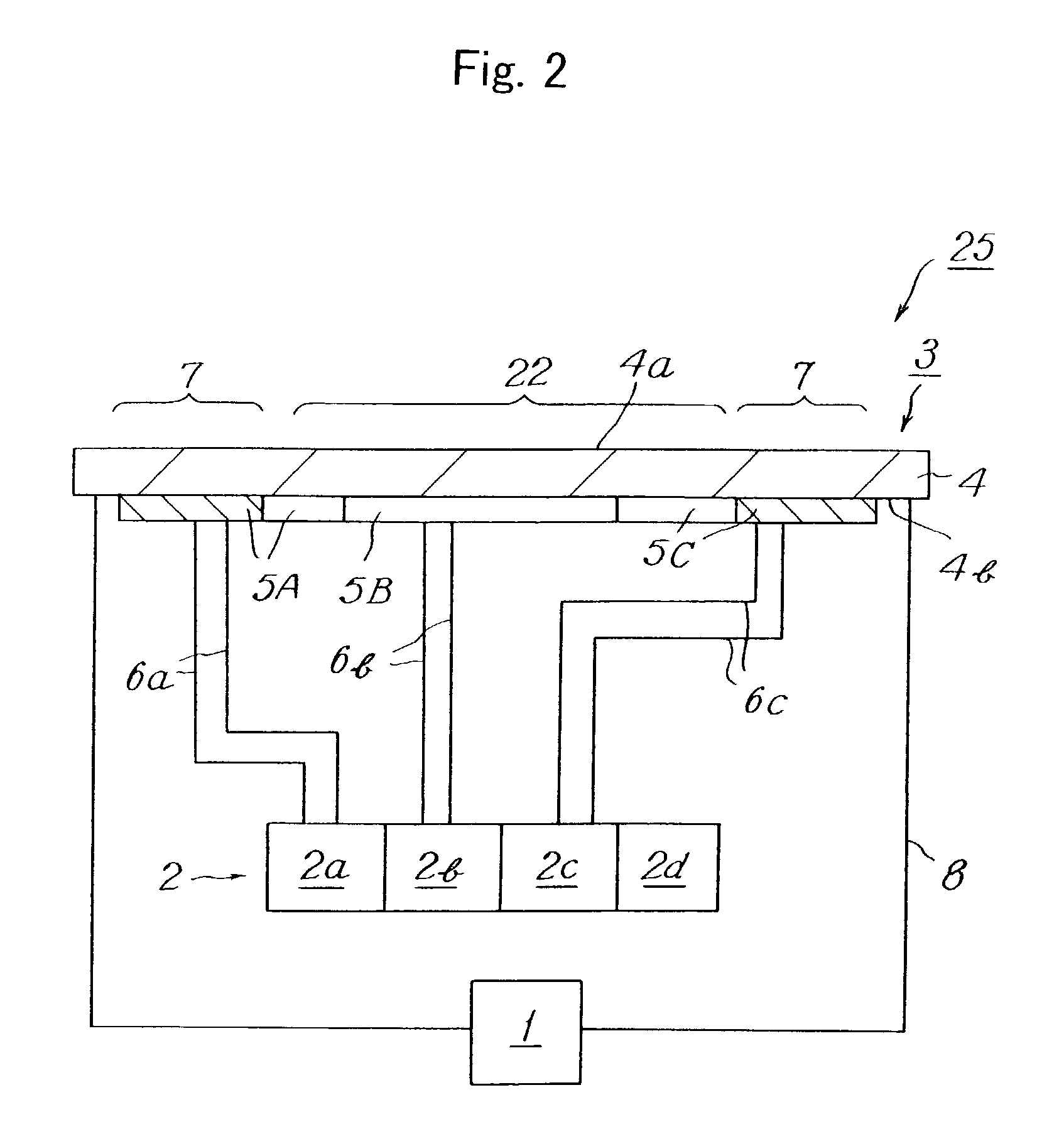Heating system
a heating system and heat exchange technology, applied in the field of heating systems, can solve the problems of complex contributions of these factors, beyond any speculation, and difficulty in performing such control, and achieve the effect of avoiding the loss of heat loss, reducing the risk of loss, and reducing the efficiency of heat loss
- Summary
- Abstract
- Description
- Claims
- Application Information
AI Technical Summary
Benefits of technology
Problems solved by technology
Method used
Image
Examples
example
[0083] The experimental results will be described below. The heating system 12 shown in FIG. 6 was produced. The system 12 was fixed in the chamber of a curing system for a coater as shown in FIG. 7.
[0084] A ceramic heater was used as the main heating element 3A. The heater is composed of a substrate made of AlN ceramics and a resistance heat generator made of a molybdenum wire. The heating surface 4a of the heater 3A had a diameter of 320 mm. The heater 3A had a thickness of 4 mm. A thermocouple was inserted and embedded within the substrate 4.
[0085] The substrates 9 of the auxiliary heating elements 5A to 5D were made of mica. The resistance heat generators 10 were made of nichrome wires. The holding member 13 was formed of stainless steel. The insulating sheet 14 is formed of a polyimide resin. Each auxiliary heating element has an outer diameter of 300 mm, an inner diameter of 220 mm, and a thickness of 1 mm.
[0086] The thus obtained heating system 12 was fixed in the chamber 18....
PUM
 Login to View More
Login to View More Abstract
Description
Claims
Application Information
 Login to View More
Login to View More - R&D
- Intellectual Property
- Life Sciences
- Materials
- Tech Scout
- Unparalleled Data Quality
- Higher Quality Content
- 60% Fewer Hallucinations
Browse by: Latest US Patents, China's latest patents, Technical Efficacy Thesaurus, Application Domain, Technology Topic, Popular Technical Reports.
© 2025 PatSnap. All rights reserved.Legal|Privacy policy|Modern Slavery Act Transparency Statement|Sitemap|About US| Contact US: help@patsnap.com



